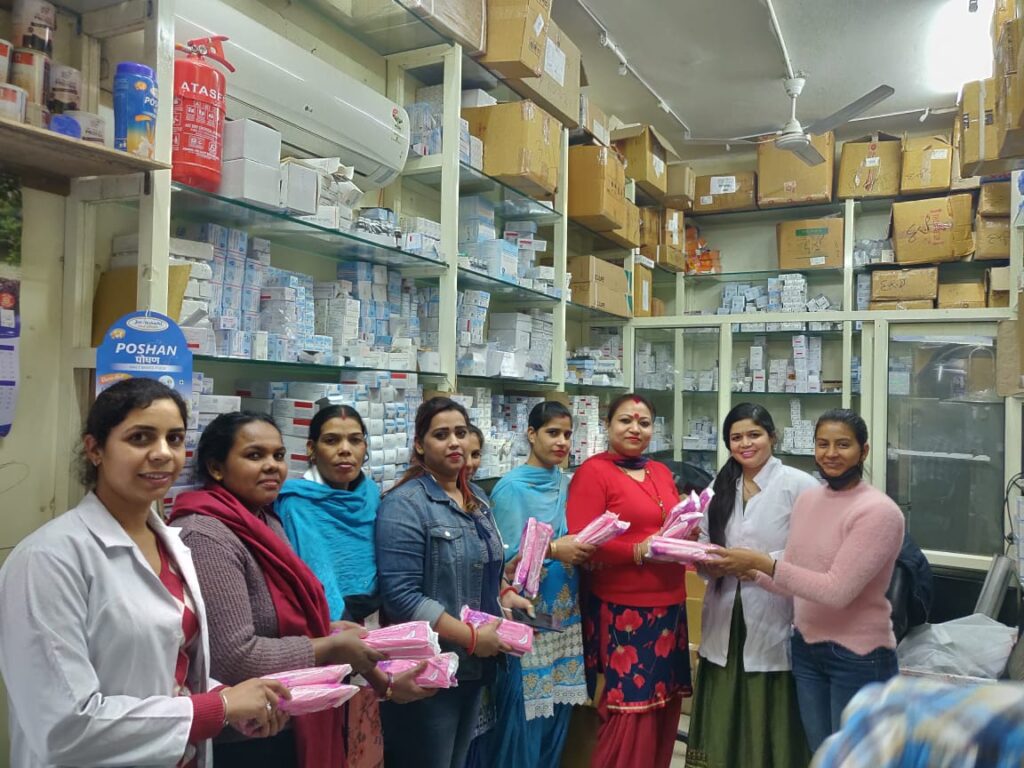When dark clouds of the corona hover over us, A small country is genuinely demonstrating the qualities of a welfare state. This country is trying to address issues that hinder the fundamental rights, dignity, and self-development of its citizen.
Scotland has become the world’s first country to provide free and universal access to sanitary products for women of all age groups. The campaign’s goal is to eliminate “period poverty” by ensuring that everyone has access to essential sanitary products.
What is period poverty
Period poverty is a lack of access to sanitary products and other essentials like toilets with clean water due to financial constraints.
In the Indian context period poverty is not only a health and economic issue. It also affects the social, emotional, and psychological dimensions of women’s life. During the period, Women are considered impure. Women are not allowed to worship; women’s restricted movement; they cannot participate in many social and religious events.
Period poverty in India
Period poverty need urgent and effective attention from social and government organization because of the following reasons:-
Health concern: Poor menstrual hygiene is the root cause for An estimated 70% of all reproductive diseases among women. Women often use dirty rags as a replacement for sanitary pads.
Cultural and social stereotypes: Menstruation in India is often seen as a shameful conversation. In many parts of India, menstruation is still considered to be dirty and impure.
Lack of awareness: Studies estimate that 71% of girls do not know about menstrual health until after their first period. Socio-cultural taboos have a detrimental effect on the girls’ knowledge levels and understandings of puberty and menstruation.
Often, girls become the subject of mockery and jokes due to a lack of understanding and sensitivity among males about the period.

Costly Sanitation facilities: For many in India, mere sustenance is a privilege. Hence using quality sanitary pads is the least priority.
Period poverty in India affects education: On average, girls miss six days of class each month due to shame surrounding their periods or a lack of sanitary products. A considerable percentage of girls in India drop out of school each year because of period poverty.
Right of Privacy:-Swachh Bharat Abhiyan has an unprecedented impact on sanitization in India. However, there are still issues that undermine the right to privacy. Female teachers and girls have to face Unfriendly school culture and infrastructure. There is a lack of adequate menstrual protection alternatives, safe, clean, and private sanitation facilities in schools.
GoI initiative to address period poverty
Janaushadhi Suvidha scheme:-This scheme aims to provide women with oxo-biodegradable sanitary napkins. Sanitary napkins are available at a meager cost of Rs 2.5/pad across 3,600 Janaushadhi Kendras in the country.
However, this scheme faces many challenges. challenges like most women are still unaware of the scheme, sanitary napkins at Janaushadhi are available in only one size and type.
The most important challenge which needs immediate attention is that Janaushadhi Kendras are far off and hard to locate, etc.
Conclusion
Pandemic has tested us on the fundamental social and economic front. We failed in many like labour rights, gender equality, robust healthcare, etc. As a nation, we will fail if we do not convert this pandemic into an opportunity. We should address issues like Period Poverty, Domestic violence, Migrant labour, Quality education, etc.
Pic credit:-pib.gov.in
Also read:Crime against women in India



Just like right to education was put into fundamental right,indian gov should put right of proper health and hygiene under fundamental right